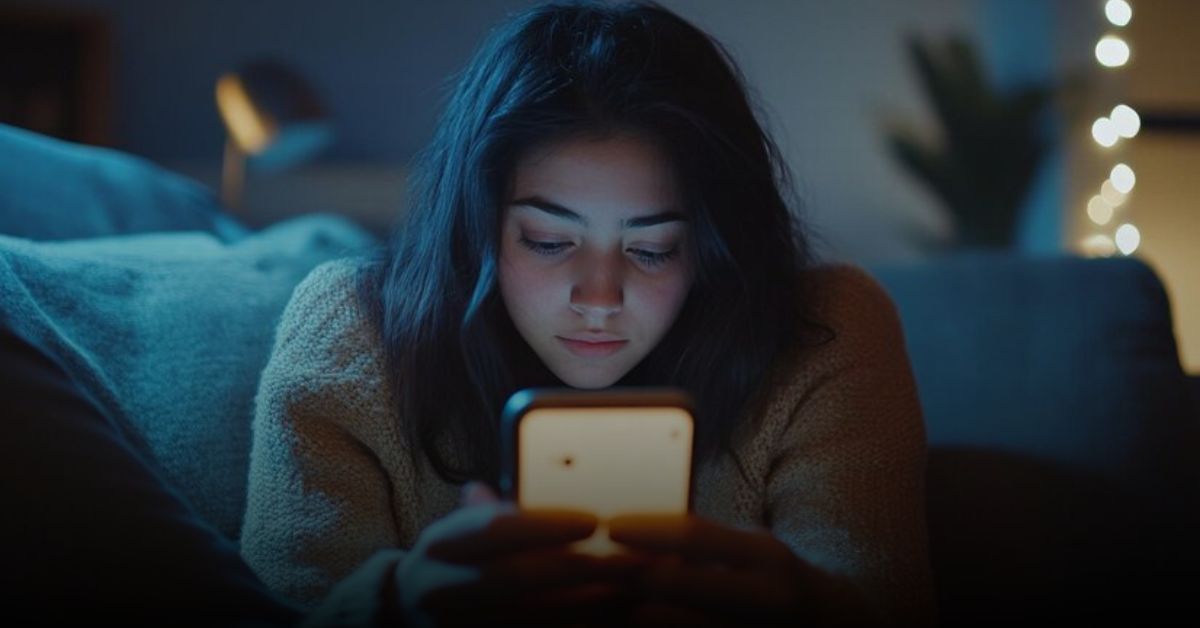Good [morning/afternoon] everyone,
The Impact of Social Media on Mental Health: Honorable teachers, respected guests, and my dear friends, I stand before you today to talk about a topic that has become an inseparable part of our lives: social media. Social media connects us in ways we couldn’t have imagined before. We can instantly share our thoughts, pictures, and experiences with the world. But today, I want to shed light on a side of social media that is often overlooked its impact on our mental health.
In today’s world, social media feels like oxygen. We wake up, and the first thing many of us do is check our notifications. We scroll through feeds, liking, commenting, sharing but at what cost? Have we ever stopped to think about how this constant connection is affecting our emotional and mental well-being?
The Pressure to Be Perfect
We live in an era where every moment can be captured, filtered, and posted for all to see. While this can be fun and creative, it also adds a lot of pressure especially for us, the younger generation. We see people with seemingly perfect lives: flawless looks, incredible vacations, amazing achievements. And we wonder, “Why isn’t my life like that?”
This comparison is toxic. What we don’t realize is that behind those perfect photos, there are stories we don’t see. We don’t see the hours of editing, the stress, or the self-doubt that person might be going through. Social media is a highlight reel, not real life. Yet, comparing ourselves to these curated lives can make us feel inadequate, anxious, and unworthy.
The Fear of Missing Out (FOMO)
Another issue that comes with social media is the fear of missing out, or FOMO. We constantly see updates from people who seem to be having more fun, doing cooler things, or achieving greater success. When we are not a part of those experiences, it makes us feel left out, isolated, and lonely. FOMO can create a cycle of stress and anxiety, where we feel we must be connected all the time just to keep up.
Cyberbullying and Negative Comments
Let’s also not forget about the darker side of social media: cyberbullying. Words can hurt more than we realize. On social media, it’s easy for people to hide behind a screen and say hurtful things they might never say in person. Bullying on these platforms can deeply affect our self-esteem, causing depression, anxiety, and sometimes leading to tragic outcomes.
Mental Fatigue and Addiction
We’re also seeing an increase in something called mental fatigue. The constant barrage of information, news, notifications, and updates never allows our minds to rest. The more time we spend online, the more difficult it becomes to focus, to be present in the real world, and to disconnect. For many, this has led to addiction, where the urge to scroll, check notifications, or post becomes compulsive.
A Call for Balance
Now, does this mean social media is all bad? Absolutely not. It has allowed us to connect with friends and family, express ourselves, and access knowledge and opportunities. But what we need to focus on is balance. Social media should not define our self-worth or dictate our happiness.
We must learn to use these platforms mindfully. Limit the time we spend online, be selective with the content we consume, and remind ourselves that it’s okay to disconnect. Our mental health is more important than likes, followers, or comments.
Conclusion: The Impact of Social Media on Mental Health Speech
As students, we are in a crucial phase of our lives where our mental health and emotional well-being should be prioritized. Social media is a powerful tool, but we must ensure it doesn’t control us or negatively affect our minds. Let us use it wisely, be kind to ourselves, and understand that we are all more than what we post.
Thank you.
Strategies for Managing Stress and Anxiety Speech in English
FAQs: The Impact of Social Media on Mental Health
However, multiple studies have found a strong link between heavy social media and an increased risk for depression, anxiety, loneliness, self-harm, and even suicidal thoughts. Social media may promote negative experiences such as: Inadequacy about your life or appearance.
For some, social media is an excellent way to connect with others, manage social anxiety and access valuable support and reassurance. However, for others, scrolling through feeds can become a compulsive addiction, fuelling unhealthy comparisons, and exposing young people to inappropriate content.
Here are some limit-setting strategies to try:
Track your time on apps. …
Turn off push notifications. …
Moving social media apps off your home screen. …
Set up “no phone zones” and “no phone times” where you don’t use your phone, such as your bedroom after a certain time, at the dinner table, or Sunday mornings.
Mental health impacts
Social media use may increase feelings of anxiety and depression, specifically in teens and young adults. The addictive nature of social media activates the brain’s reward center by releasing dopamine. This is a “feel-good chemical” linked to pleasurable activities.
The more time spent on social media can lead to cyberbullying, social anxiety, depression, and exposure to content that is not age appropriate. Social Media is addicting. When you’re playing a game or accomplishing a task, you seek to do it as well as you can.






10 thoughts on “The Impact of Social Media on Mental Health Speech in English”